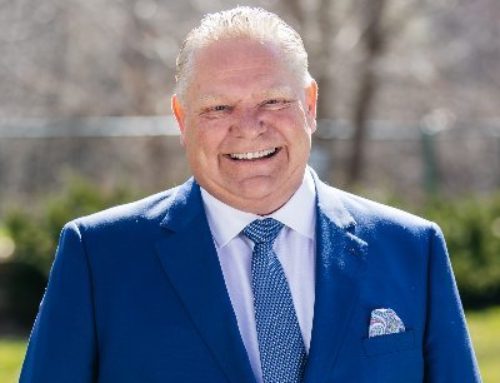RickMcGinnis:

Interim writer, Rick McGinnis, Amusements
By the time this column comes out America will be on the eve of a presidential election that has been alternately incredible and improbable, and might transform that country’s politics irrevocably no matter who wins. In hindsight this vertiginous moment is the result of events that began over a quarter century ago, though I doubt anyone could have predicted where they have taken the country.
Watching it as a Canadian is not unlike being invited to a friend’s holiday dinner and realizing that the horror stories they’d told you about their dysfunctional family weren’t humorous exaggeration but diplomatic understatement. But what’s shouted in America echoes in Canada, and a year out from our own federal election there’s every likelihood that we’re going to endure what can charitably be called a community theatre re-staging of the big budget, star-studded American productions.
We have reached the point in the election cycle where both sides are calling each other fascists, and insisting that if they lose this November it will be the end of democracy. There is talk about choosing the “lesser of two evils.” Back in August Charles C. W. Cooke explained his response to this sort of sour, demoralizing politics with an article in the National Review titled simply “I Hate Everyone.”
“Of my own volition,” Cooke wrote, “I’m watching the unfolding of an election in which the two dumbest presidential nominees in American history vie to take over the White House from the dumbest president in American history. This contest has no redeeming features. It’s not amusing. It’s not edifying. It’s not even over – which would be a blessing in itself. It’s an endless, attritional, propaganda-infused slog.”
It’s the sort of election, he says, where it would be better if both candidates and their seconds simply shut their mouths: “Donald Trump put himself in a leading position by shutting up and then being shot by a madman. Kamala Harris overtook him by repudiating all aspects of her past via proxies and then allowing the press to turn her into an emoji. J. D. Vance would be better off if his catalog of internet-edge-lordery had been scrubbed, and Tim Walz can’t speak without being trapped in a ridiculous lie.”
Most of the time, whether enduring an election here or being forced to watch one across the border, I simply grumble and ask that no one tell me the results until I’ve had breakfast the morning after polls close. This year, however, I’ve tried to find an answer to the question: How did we get here?
In The Decline of America: 100 Years of Leadership Failures, David D. Schein tried to provide an answer. Schein, a professor at the University of St. Thomas in Houston, Texas, did an overview of a hundred years of American presidents based on the key events of their administration and a comparison of basic economic statistics during their terms. (The book was published in 2016, just after the election of Donald Trump, so it only covers the period from Woodrow Wilson to Barack Obama.)
Schein attempts to remain objective with this “just the facts” approach and your mileage may vary, but his summary grades for each president are sobering. The highest rated president in Schein’s estimate is Harry Truman (B-) while the lowest is Richard Nixon (F); most hover around a D, with a small handful (Calvin Coolidge, Ronald Reagan, George H.W. Bush) getting something around a C. His grading suggests that America has been for the better part of a century led by midwits, though he concludes that simple luck is a crucial factor: Herbert Hoover and George W. Bush were particularly luckless, while Dwight Eisenhower and Bill Clinton hit economic sweet spots.
(Clinton’s feckless morals would trouble him as much or more than failures like national health care or a series of wars in which America participated with no real goals or results.)
Numbers like inflation rates are difficult to understand in context, and swing wildly all over the place: Woodrow Wilson ended his time in office with inflation around 16 per cent; Hoover ended his with a rate of -10.1 per cent, Jimmy Carter at 15.5 per cent and Obama at 1.5 per cent. The average person won’t know what this means, but they do have a very subjective idea of how much money they have and how much it buys them.
Easier to read are the totals of the national debt, which was around $24 billion at the conclusion of Wilson’s term in office, at the end of the First World War. This number would actually decrease over the next two presidencies, rise slightly by the end of Hoover’s, and balloon to $201 billion by the time Franklin Delano Roosevelt died during his fourth term in office, near the end of another world war. It rose gradually but steadily over the next half century, to $5 trillion at the end of the Clinton administration, and upward to $34 trillion last year.
But if we’re honest we have to admit that these numbers, at this magnitude, become abstractions that only confirm what we all suspect – that our governments are as hopelessly debt-financed as we are. I’d suggest that this is as comforting as it is distressing for the public if they think about the national debt at all, and there are persistent voices in the financial media who treat government debt as an abstraction, insist that it only looks bad because of inflation, and even scold politicians who promise to pay down the debt for either wonkery or making empty promises.
And they might be either cynically right or merely economically illiterate. But if they’re wrong it’s certain that the outcome will be catastrophic if and when these numbers become insupportable and, suddenly, very real.
Schein is most insightful when he writes that the U.S. president might not be as crucial to economic performance as we assume, and that much of the blame for our increasingly dismal view of ineffective, self-serving and corrupt politics today rests with elected officials in Congress, who aren’t bound by the same term limits as the president (traditionally kept to two terms until FDR, whose four terms led to the 22nd Amendment), and beyond that to a vast and ever-expanding unelected bureaucracy.
Schein writes that the media once had a lot to do with suppressing scandals and creating myths around presidents – their adoration of John Kennedy did as much to build his saintlike image (wholly overrated, and not just according to Schein) as their contempt did to transform Nixon into a gargoyle, the bête noire of a whole generation. From the perspective of 2016, though, he wondered “whether the media has any real impact today. It is quite possible that there is so much media available to all persons today that the wave of information and misinformation washes over them. Whether the New York Times leans left and the Wall Street Journal leans right becomes irrelevant to the ultimate issue of who will become the next president.”
Scheim writes: “As voters become calloused recipients, stories must be more extreme and either present the candidate in his or her own words stating something offensive or present overwhelming evidence of extreme conduct. In turn, the direct access to the public by the candidates also means that they may be able to directly contradict negative news reports.”
The last eight years have made this seem both hopeful and naïve. Always-on social media, meme wars, poor education, intense polarization of voters, and, let’s be honest, the rapidly declining quality of our candidates has combined with the most harmful aspect of modern democratic politics – the near-constant campaigning at the expense of actually governing – to create a civic nightmare where only the worst people make the undignified lunge for public office: Career political apparatchiks, puppets of powerful interest groups, activists more focused on single issues than the grind of maintaining a country or just sociopaths and narcissists. Perhaps these kinds of people were always attracted to public office, but it was once possible to imagine that there were at least a few people motivated by duty or even civic idealism to balance them out. Or maybe we’ve always been fooling ourselves.
In his National Review article, Cooke writes that “within the balloon that is Election 2024, it is accepted as an article of faith that, thanks to the other team’s myopic perfidy, everything in America is ill. This is false, and it is good that it is such.” Cooke continues: “We face problems – some of which are the direct product of our feckless political class – but we are still the greatest, kindest, most exciting, most dynamic society that has ever existed on this earth. Our politics are eschatological, but the civilization they pretend to serve is fine. Not perfect, not catastrophic, fine. What is being served up by the political postulants of Washington, D.C., and beyond is a disgrace that does not intersect with the electorate.”
It’s an unexpectedly optimistic note, and it rests on the notion that, no matter how devolved our politics or politicians become, we deserve better. Let’s hope that it’s true, because if it isn’t we are headed into a world far more awful than a pessimist’s worst-case scenario.




